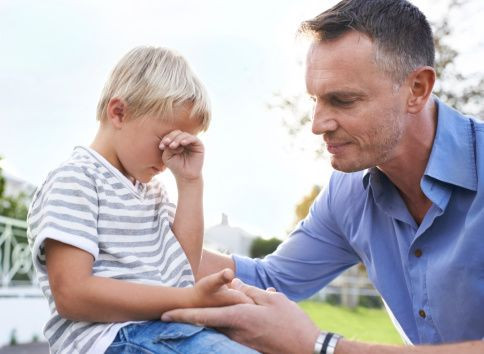Signs Of Helicopter Parenting: How Cossetting Children Affects Them

The challenging and nerve-wracking experience of being a parent was summed up by John Wilmot, 2nd Earl of Rochester, when he said: “Before I got married I had six theories about raising children; now, I have six children and no theories.”
The lack of any certified "theory" makes parents approach the task of bringing up their kids in their own ways, and it is impossible to find two identical ways of raising children.
However, there are some general characteristics which help classify certain styles of parenting. Over the years, researchers have coined many names for these styles: “Free-range parents” (who allow children a great deal of freedom), “Snowplough parents” (who root out all obstacles in their children’s paths) and “Tiger parents” (who push their children to succeed based on their own definition of success).
Another important classification — helicopter parenting —is one that has triggered the most debates. The term was coined by psychologist Foster Cline and education consultant Jim Fay in their 1990 book "Parenting with Love and Logic." The term “helicopter" is used in the sense that the parents always “hover” over their children, and are overly involved in their lives.
The term encompasses parents who “are overly focused on their children and typically take on too much responsibility for their children's experiences and specifically their successes or failures.”
Pediatrician Dr. Cindy Gellner told Health Minute, a programme on University of Utah Health Sciences Radio: “Helicopter parenting can apply at any age. A helicopter parent of a toddler might constantly shadow the child always playing with and directing their behavior allowing them zero time alone to explore and learn on their own.
She added: “In elementary school helicopter parenting can be revealed through a parent ensuring a child has a certain teacher, selecting the child's friends and activities or providing too much help with homework and school projects, pretty much doing it for them.”
According to Madeline Levine, psychologist and author of the book "The Price of Privilege," there are three ways that are considered over-parenting:
- When parents do for their kids what the kids can manage themselves;
- When parents do for their kids what the kids can almost do themselves;
- When the parents’ behavior is motivated by their egos.
The intentions behind this behavior of parents may not be wrong, wrote Julie Lythcott-Haims, author of “How to Raise an Adult: Break Free of the Overparenting Trap and Prepare Your Kid for Success” in a Slate article.
“We love our kids fiercely and want only the very best for them. Yet, having succumbed to a combination of safety fears, a college admissions arms race, and perhaps our own needy ego, our sense of what is “best” for our kids is completely out of whack,” Lythcott-Haims further said.
While this over-protective attitude may save their child or adolescent from problems they would not themselves foresee, several researchers and articles have pointed the negative effects of this style of parenting on the children.
“When children aren’t given the space to struggle through things on their own, they don’t learn to problem solve very well. They don’t learn to be confident in their own abilities, and it can affect their self-esteem. The other problem with never having to struggle is that you never experience failure and can develop an overwhelming fear of failure and of disappointing others. Both the low self-confidence and the fear of failure can lead to depression or anxiety,” said Lythcott-Haims in her article.
A study by the University College London which tracked a group of people from their birth in the 1940s to 2015, found that those who said their parents did not allow them much privacy in childhood or encouraged dependence were “more likely to have low scores in surveys of happiness and general wellbeing carried out in their teens, their 30s, their 40s and even their 60s.”
While it cannot be declared bad parenting, psychologists and researchers have suggested that avoiding helicopter parenting your kids might be for the best. According to Gellner, healthy boundaries must be set with children consistently. This could provide parents with the opportunity to explore their kids’ individuality and question new ideas.
“Your kids have to be there for themselves . That’s a harder truth to swallow when your kid is in the midst of a problem or worse, a crisis, but taking the long view, it’s the best medicine for them,” concluded Lythcott-Haims.
© Copyright IBTimes 2024. All rights reserved.





















